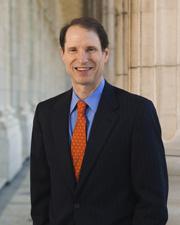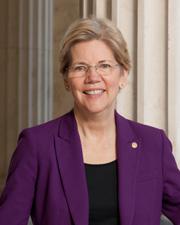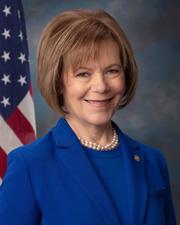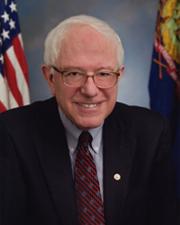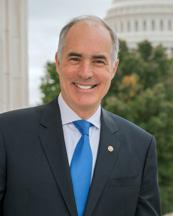0
0
0
Building Child Care for a Better Future Act
3/12/2024, 9:15 PM
Summary of Bill S 2013
Bill 118 s 2013, also known as the Building Child Care for a Better Future Act, is a piece of legislation introduced in the US Congress with the aim of improving access to high-quality child care for families across the country. The bill seeks to address the growing need for affordable and reliable child care services, particularly for low-income families and working parents.
One of the key provisions of the bill is the establishment of a grant program to assist states in expanding access to child care services for families in need. This program would provide funding to states to support the development of new child care facilities, as well as the improvement of existing ones. The goal is to increase the availability of high-quality child care options for families, particularly in underserved communities.
Additionally, the Building Child Care for a Better Future Act includes measures to improve the quality of child care services, such as increasing training and professional development opportunities for child care providers. The bill also aims to enhance the safety and well-being of children in child care settings by implementing stricter licensing and inspection requirements. Overall, the Building Child Care for a Better Future Act is a comprehensive piece of legislation that seeks to address the challenges facing families in accessing affordable and high-quality child care services. By investing in the expansion and improvement of child care facilities, as well as supporting the professional development of child care providers, the bill aims to create a better future for children and families across the United States.
One of the key provisions of the bill is the establishment of a grant program to assist states in expanding access to child care services for families in need. This program would provide funding to states to support the development of new child care facilities, as well as the improvement of existing ones. The goal is to increase the availability of high-quality child care options for families, particularly in underserved communities.
Additionally, the Building Child Care for a Better Future Act includes measures to improve the quality of child care services, such as increasing training and professional development opportunities for child care providers. The bill also aims to enhance the safety and well-being of children in child care settings by implementing stricter licensing and inspection requirements. Overall, the Building Child Care for a Better Future Act is a comprehensive piece of legislation that seeks to address the challenges facing families in accessing affordable and high-quality child care services. By investing in the expansion and improvement of child care facilities, as well as supporting the professional development of child care providers, the bill aims to create a better future for children and families across the United States.
Read the Full Bill
Current Status of Bill S 2013
Bill S 2013 is currently in the status of Bill Introduced since June 15, 2023. Bill S 2013 was introduced during Congress 118 and was introduced to the Senate on June 15, 2023. Bill S 2013's most recent activity was Read twice and referred to the Committee on Finance. as of June 15, 2023
Bipartisan Support of Bill S 2013
Total Number of Sponsors
1Democrat Sponsors
1Republican Sponsors
0Unaffiliated Sponsors
0Total Number of Cosponsors
10Democrat Cosponsors
8Republican Cosponsors
0Unaffiliated Cosponsors
2Policy Area and Potential Impact of Bill S 2013
Primary Policy Focus
FamiliesAlternate Title(s) of Bill S 2013
Building Child Care for a Better Future Act
Building Child Care for a Better Future Act
A bill to amend part A of title IV of the Social Security Act to provide funding to sustain and increase the supply and quality of child care, access to child care, and the child care workforce, and for other purposes.
Comments
Sponsors and Cosponsors of S 2013
Latest Bills
Providing amounts for the expenses of the Committee on Ethics in the One Hundred Nineteenth Congress.
Bill HRES 131December 12, 2025
Providing for congressional disapproval under chapter 8 of title 5, United States Code, of the rule submitted by the Bureau of Land Management relating to "Central Yukon Record of Decision and Approved Resource Management Plan".
Bill HJRES 106December 12, 2025
Expressing the sense of the House of Representatives in condemning the Government of the People's Republic of China for its harassment and efforts to intimidate American citizens and other individuals on United States soil with the goal of suppressing speech and narratives the People's Republic of China finds unwelcome.
Bill HRES 130December 12, 2025
Providing for congressional disapproval under chapter 8 of title 5, United States Code, of the rule submitted by the Bureau of Land Management relating to "North Dakota Field Office Record of Decision and Approved Resource Management Plan".
Bill HJRES 105December 12, 2025
Providing for congressional disapproval under chapter 8 of title 5, United States Code, of the rule submitted by the Bureau of Land Management relating to "Miles City Field Office Record of Decision and Approved Resource Management Plan Amendment".
Bill HJRES 104December 12, 2025
Providing amounts for the expenses of the Select Committee on the Strategic Competition Between the United States and the Chinese Communist Party in the One Hundred Nineteenth Congress.
Bill HRES 104December 12, 2025
Critical Access for Veterans Care Act
Bill S 1868December 12, 2025
OATH Act of 2025
Bill S 1665December 12, 2025
A bill to extend the authority for modifications to the Second Division Memorial in the District of Columbia.
Bill S 1353December 12, 2025
Saving Our Veterans Lives Act of 2025
Bill S 926December 12, 2025
Building Child Care for a Better Future Act
Bill HR 5876December 19, 2024
